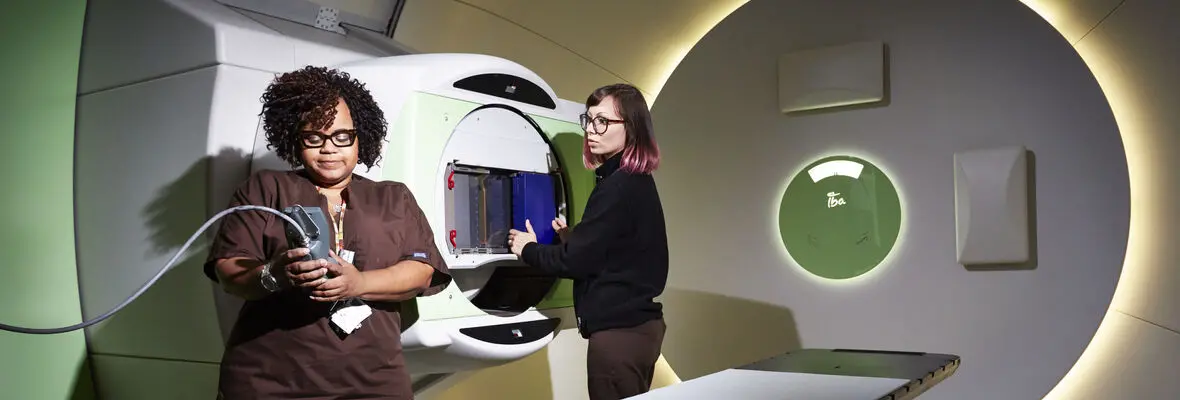Welcome to the Department of Radiation Oncology
Message from James M. Metz, MD — Chairman
Penn Radiation Oncology is dedicated to a three-part mission of excellence in patient care, basic and translational research, and the education of residents and students. We are committed to delivering excellence in every area and as such we steadfastly believe that "Excellence is Standard."
Penn Radiation Oncology is one of the most comprehensive radiation oncology programs in the world. The outstanding faculty and staff, combined with Penn’s extensive collection of advanced technology, gives patients access to nearly every treatment option available for their cancer. The broad range of radiation treatments available include Proton Therapy, intensity-modulated radiation therapy (IMRT), high-dose rate (HDR) and low-dose rate brachytherapy, partial breast irradiation, stereotactic radiosurgery (SRS), and Gamma Knife radiation. With the Abramson Cancer Center of the University of Pennsylvania, Penn Radiation Oncology provides patient care at the Ruth and Raymond Perelman Center for Advanced Medicine (PCAM), six major hospitals, and nine community-based sites.
Read more of the Message from the Chair »
Dr. Vapiwala named Eli Glatstein Professor »
News
-
Radiation Oncology Chair Speaks at Juniata College Commencement
Wednesday, May 21, 2025
James Metz, MD, chair of Radiation Oncology, served as the 2025 commencement speaker for his alma mater, Juniata College in Huntingdon, PA, where his experiences—both in the classroom and on the football field—helped prepare him for a career on the forefront of cancer treatment.
-
PA Breast Cancer Coalition Awards Grant to Penn Medicine Researcher
Wednesday, May 7, 2025
PA Breast Cancer Coalition Awards Grant to Penn Medicine Researcher
The PA Breast Cancer Coalition (PBCC) presented a grant of $100,000 to Ioannis Verginadis, PhD, a research assistant professor of Radiation Oncology, to advance his research on FLASH proton radiation therapy for breast cancer. With this grant, the PBCC has awarded a total of more than $1 million in grants to Penn Medicine researchers.
-
Penn Medicine Breaks Ground on University City Proton Therapy Center
Monday, May 5, 2025
Penn Medicine celebrated the ceremonial groundbreaking of the Roberts Proton Therapy Center at Penn Presbyterian Medical Center last week. The state-of-the-art, $224 million center will be Penn Medicine’s fourth proton therapy location, and is expected to open for patient care in late 2027. “This new center will allow us to fully serve patients with the most advanced radiation therapy treatment options," said John Plastaras, MD, PhD, chief of Radiation Oncology and Proton Therapy at Penn Presbyterian Medical Center.
Pennsylvania Business Report • DOTmed.com • PHILADELPHIA Today





